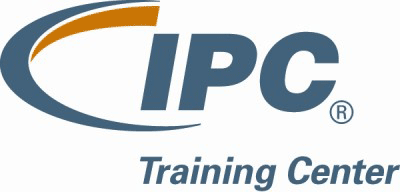IPC/WHMA-A-620 for Certified IPC Specialist (CIS) 12-AUG-2024
IPC/WHMA-A-620, Requirements and Acceptance for Cable and Wire Harness Assemblies, is the first industry consensus standard for cable and wire harness fabrication and installation, developed with the support of the Wire Harness Manufacturers Association (WHMA). Classes of products are defined and include criteria for Acceptable, Process Indicator and Defect conditions to support the collection of visual quality acceptability requirements for each class.
This certification will familiarise candidates with the general requirements of the IPC/WHMA-A-620 standard and will promote a commitment to enhancing product quality and reliability, while facilitating certification to ISO and other quality assurance initiatives. The course aims to teach personnel how to verify the quality of work performed to ensure compliance and minimise rework.
This certification is primarily lecture-based, however, SMCBA are pleased to now offer the optional Hands-On module! The objective of the hands-on module is to teach correct application of the IPC/WHMA-A-620 standard and provide a positively-discriminated certification on hand skills.
TOPICS COVERED IN THE IPC/WHMA-A-620 CERTIFICATION COURSE (REVISION E):
Module 1 (Required)
General, Applicable Documents, Wires, Measuring and Testing
Module 2 (Optional)
Crimp Terminations and Insulation Displacement Connection
Module 3 (Optional)
Soldered Terminations and High Voltage Applications
Module 4 (Optional)
Connectorisation and Over-Moulding/Potting
Module 5 (Optional)
Ultrasonic Welding and Splices
Module 6 (Optional)
Marking/Labelling, Securing and Finished Assembly Installation
Module 7 (Optional)
Coaxial and Biaxial Assemblies
Module 8 (Optional)
Harness/Cable Electrical Shielding and Cable/Wire Harness Protective Coverings
NEW Hands-On Optional Modules: Contact SMCBA For Pricing
H1 (Optional)
Preparation, Measuring, Shielding and Testing
H2 (Optional)
Crimp Terminations
H3 (Optional)
Soldered Terminations
H4 (Optional)
Connectorisation
H5 (Optional)
Splices
H6 (Optional)
Coaxial Cables
The certification term for IPC/WHMA-A-620 Certified IPC Specialists is two years. Re-certification training is also available through the SMCBA.
FEES:
Certified IPC Specialist (CIS) Course Fee: Book online or contact the SMCBA for pricing.
SMCBA Members receive a discount.
PLEASE NOTE:
The fee for the IPC/WHMA-A-620 Certified IPC Specialist course includes all materials for the course, refreshments and catering each day.
The CIS fee does NOT include a copy of the IPC/WHMA-A-620 standard - it is assumed that students will have access to the standard at their place of work. The standard can be purchased separately – please refer to our online store or contact Teagan at
All enquiries to
Event Information
| Event Date | 12 Aug 2024 8:45 am |
| Event End Date | 14 Aug 2024 4:30 pm |
| Cut Off Date | 09 Aug 2024 |
| Capacity | 8 |
| Individual Price | $1,600.00 |
| Location | Training Centre Adelaide |
| Categories | IPC/WHMA-A-620 |
IPC-A-610 Training Course Information
IPC-A-610, Acceptability of Electronic Assemblies, is the most widely used specification published by IPC with an international reputation as THE source for end-product acceptance criteria in both consumer and high-reliability electronic assemblies. A comprehensive and technical program, this certification will improve candidates’ accuracy of ‘discrimination’ between an ‘acceptable’ and ‘non-conforming’ electronic assembly per the IPC-A-610 standard, leading to continuous improvement in product quality and reliability.


